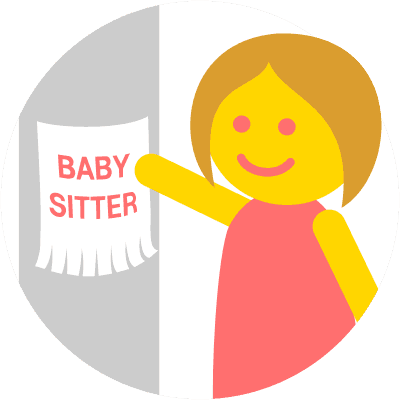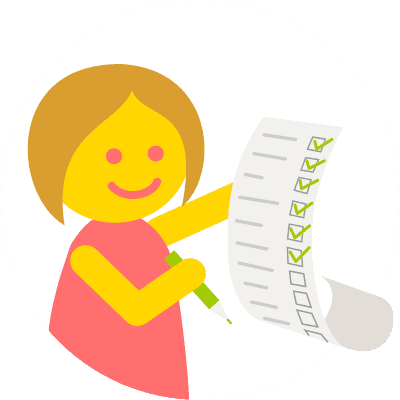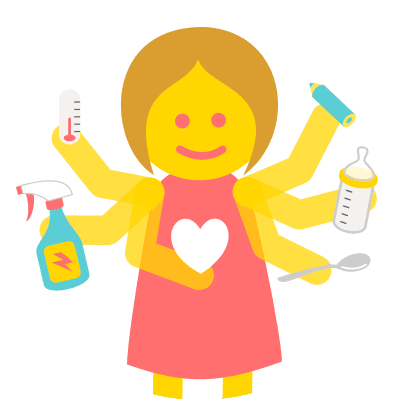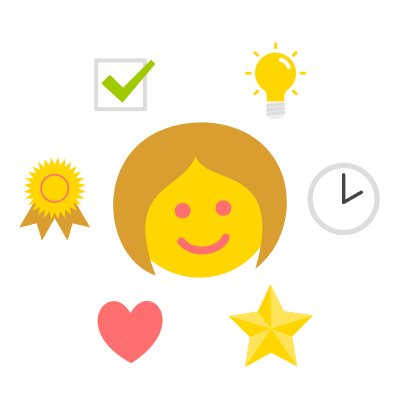Babysitting References (What Are They & How To Get Them?)


Written & Illustrated by
Matthew James Taylor
Kidsit Founder, General Manager

Babysitting Video by
Lydia Kutz
Babysitter, Infant Swimming Resources Instructor

Reviewed & Edited by
Renee Irving Lee, B.Ed.
Special Education Teacher, Swim Coach, Childrens Author
Key Takeaways
- Babysitting references are recommendations from individuals - such as past employers, teachers, or family friends - who can speak positively about your character, reliability, and experience as a caregiver.
- Why they matter: References provide potential clients with confidence in your abilities and trustworthiness, especially if you're new to babysitting or seeking more opportunities.
- Who to ask: Ideal referees include previous employers, teachers, coaches, or family friends who can attest to your responsibility and interaction with children.
- How to request: Approach potential referees politely, explaining your goals and asking if they'd be comfortable providing a reference. Offer to provide a draft to make the process easier.
- Prepare your references: Before listing someone as a reference, ensure they are willing and informed about what to expect. Provide them with details about the job you're applying for and any specific qualities or experiences you'd like them to highlight.
Your babysitting references are one background check that potential clients can use before hiring you. It can give them peace of mind knowing that you come highly recommended from others. But how do you get babysitting references to begin with?
What are babysitting references and how do you get them? References are from people in your life such as past employers, teachers, and others who can speak positively about you when you're applying for a babysitting job. If you haven't worked before or don't have much of a professional network, you'll need to be creative to compile a list of references.
Kidsit babysitting statistics
21.62% of babysitters have parent references available.
(Babysitting statistics calculated weekly from our live member data — Updated 16 Feb 2026)
In this article, I'll explain what babysitting references are, why they're important, who you should use as a reference, and some other tips on babysitting references.
Lydia has been working in the childcare industry for 15 years, and owned a childcare agency in Florida, USA for 7 years. During this time she has seen both sides of babysitting references, from a babysitter's perspective, and as an employer of babysitters for her business. In this video she explains what a babysitting references is, and how to get good ones that will help you to find more jobs.
What Are Babysitting References?
Reference letters are actually more used for nannies but I've seen more and more babysitting clients ask for them. A reference is usually written or verbal and is a letter of recommendation from a past client or a current client to a possible new client. The letter of recommendation has everything from how they liked using you and how you worked in their household, how you interacted with the kids, basically everything positive about how you were as a babysitter for them.

Babysitter, Infant Swimming Resources Instructor
St Petersburg, Florida, United States
As part of the babysitting job hunt process, you might get asked to provide references. This is a list of people, (referees), that your potential client can contact to speak with and learn more about you.
Having a good set of references will improve your chances of landing the babysitting job that you want. It's good to choose referees who can give a positive impression of you and your work.
Why Are Babysitting References Important?
Imagine that you've finally found the babysitting client of your dreams, or they've found you through advertising that you've done.
They call you up and want to meet with you for an interview. Everything seems to have gone well, and you're pretty sure that you've got the job. Then they ask one question that starts to give you doubts.
"Can I see your references?"
If you're a brand new babysitter who has never had a job before, whether babysitting or otherwise, this can be an anxiety-provoking question.
You might freeze up for a minute, before telling them that you don't have your references on you, but you'd be happy to send some over within the next day or two.
Now you've got to scramble to find three to five people who are willing to vouch for you.
Don't put yourself in that position. Before you go to an interview for a babysitting job, take some time to prepare a sheet of referees ahead of time. At some point during your babysitting career, someone is going to ask for them. So you might as well get them out of the way up front.
(Are you just getting started? Check out my article How To Start Babysitting with No Experience for 7 easy steps.)
Are Babysitting References Useful?
Referrals can be used for other things outside of babysitting, for example, if you're in high school and you need a college reference letter, or recommendation letter, those families that you babysat for are perfect people to write you recommendation letters for college or for another job outside of babysitting.

Babysitter, Infant Swimming Resources Instructor
St Petersburg, Florida, United States
Babysitting references can really be helpful to put you ahead of the competition. It can mean the difference between finding work or not.
Families often interview many candidates for a babysitting position and if they end up with multiple people they like, references can make enough difference to push you to the top of the list. You want to be right at the top!
So even if you feel like references are an outdated practice, it can still be worth investing the time to put together some good ones to portray you in the best light possible.
Job references are still a widely used tool by prospective employers so going through this process is good practice, it may come in handy for future employment.
How To Get Babysitting References
So for babysitting, the best way to get a letter of recommendation or reference is to approach current clients. Ask if they could write you a letter of recommendation for future clients as I'm trying to grow my clientele and I think your words would mean a lot.

Babysitter, Infant Swimming Resources Instructor
St Petersburg, Florida, United States
If you're young and babysitting is the first real job that you've ever applied for, getting a list of references can be difficult. You don't have any previous babysitting work experience to draw from in terms of contacts who can vouch for you.
The same might be the case if you've worked another job in the past, but your previous job was unrelated to babysitting. Maybe you worked in a fast-food restaurant or a clothing store, and now you're trying to transition to a babysitting business. In this case, you might have references, but they won't be able to speak about specific child-related skills that you might need for the position.
When it comes to providing references, it doesn't necessarily need to be a perfect match.
Of course, it would be great if you had five families you had previously babysat for who could give you a glowing review. For beginner babysitters, that isn't really practical.
So my best advice when it comes to providing babysitting references is just to provide the best fit possible. Your references don't necessarily need to relate to childcare. Although if you have a family member you've babysat for before, that can be a good person to include on the list.
Start off by brainstorming all of the people in your life that likely have a favorable opinion of you and would like to support you and see you succeed. It can be anybody that is able to talk about your qualifications, experience, work habits, skills, or general character.
Who Should You Use As A Babysitting Reference?
You can essentially list anyone as a reference when you're interviewing for a babysitting job. But the more closely related to the field of childcare or babysitting they are, the better.
Here are some good options:
Former Employers
Your former manager or boss can make a great reference when you're applying for a babysitting job. This is assuming that you left the job on good terms and they have a favorable opinion of you!
Your former employer can give a good insight into what kind of worker you are. They can confirm that you are reliable and punctual, that you have a good work ethic, that you're a team player and other positive qualities that parents look for in a babysitter.
By default, it also shows that you've had previous jobs and you've been able to handle the responsibilities associated with employment in the past!
Whenever you leave a job, it's a good idea to try and get email addresses or phone numbers from previous employers, and consider asking if you can use them as a job reference on your last day. That's usually easier and less awkward than calling them up out of the blue several months later.
Wondering if past babysitting jobs are considered work experience? Check out my article Is Babysitting Considered Work Experience? to find out!
Colleagues
You can use people from previous jobs as a reference, even if they weren't your manager.
In many cases, people you worked with at previous jobs go on to be your friends even after you've left the workplace. You might have them as contacts on Facebook, LinkedIn, or other social media platforms, so it's easy to get in touch with them when you want to use them as a reference.
Former co-workers can talk about what it was like to work with you, how you handle being a team player, and generally what kind of employee and person you are.
Teamwork is an important skill that parents look for. You need to be able to work with the children you babysit and their parents on a day to day basis. These so-called "soft skills" involving dealing with people are crucial when it comes to childcare.
Family Members and Friends
When I first started off applying for jobs and had no other references, I used some of my parent's friends who I had interacted with or had done little jobs for in the past.
If you've ever babysat for a relative (even if it was for free, or only a couple of hours), or even if you just looked after their pet dog for an afternoon, that's a great person to include in your references as a beginner.
This is one reason why babysitting for free can pay off. See my article Babysitting For Free for 6 more reasons why it can really help you to get started.
However, it's best not to list people on your resume with titles like "aunt" or "mom." Find creative ways to rephrase it instead. If you've babysat for them before, it's fine to list them as "former babysitting client." Even if it was your own brother that you babysat! You don't want to lie on your references, but you do want to make them sound as professional as possible.
Neighbors
If you're a bit short on people to use as references, neighbors can help to fill in some of those gaps.
Maybe you've got an elderly neighbor that you helped by shoveling their driveway in the winter or cutting their grass in the summer.
Or perhaps your neighbor paid you to help with a renovation or landscaping project, take care of their child for a bit, or any number of other little jobs.
Don't underestimate all of the people in your social network that you might not initially think of when it comes to references. Many of them probably think positively and would be happy to help put in a good word for you.
Teachers
Teachers or professors can make awesome references - particularly if it's a teacher of home economics or health class where you learned some things that relate to childcare or working in the home.
These teachers will be able to tell parents what skills you learned in their class, as well as what kind of student you were, and what you're like as a person.
If you have an academic advisor or school counselor that you spent a fair amount of time with, they can be another great reference. They can vouch for how you've grown as a person over the time that they've known you, and how you've always shown an interest in caring for children.
Volunteer Positions and Extracurricular Contacts
If you've ever worked at a charity, on a volunteer project, at an unpaid internship, or any kind of extracurricular activity, then you probably met someone there who you could use as a reference.
If you played on a sports team, your coach could give you a good reference. If you worked on something charitable, your supervisor could talk about your passions, your personal character, your work ethic, and other aspects of you. Anybody in a position that spent a good deal of time and got to know you as a person can make a good reference.
Your church pastor or any other "upstanding member of the community" who you've been involved with and can speak about the work you've done can put in a good word for you. Anyone who has dealt with you with regards to community service projects can be good references to use.
What kind of qualifications should your reference mention? See my article on Babysitting Qualifications to learn more.
Reference Tips To Keep In Mind
So now you know what babysitting references are and how you can get them. Here are some additional tips that you should consider when it comes to references.
Ask In Advance
Always ask your references ahead of time if they'd be willing to let you use them as a reference. You don't just want to spring it on them at the last minute.
If you need someone to write a letter of recommendation for you, you especially want to give them plenty of time so that they don't feel rushed.
Start asking people if you can use them as a reference as soon as you start searching for jobs, if not even before that!
Understand Company Policies
Some employers will refuse to provide references for past employees.
One of my former employers allowed people to use them as a reference, but only the HR department and they would only disclose minimal information such as your job title and dates of employment.
If you ask a former manager if you can use them as a reference and they say they can't because of company policy, be understanding. Don't think they're just trying to get out of doing it for you. Many people would probably be willing to put in a good word for you but are restricted by their employer.
Companies normally make this policy to protect themselves from potential litigation. If someone says something negative about you and it means you don't end up getting the job, that business doesn't want to potentially get held responsible for it.
If company policy prevents you from using an employee as a reference, you'll just need to look for alternative references instead.
Always Be Thinking of Potential References
Whenever you leave a job or organization that you've been working with for a while and you're on good terms with them, it never hurts to request a reference when you leave.
This way you'll never have a shortage of references that you can use when applying for babysitting jobs. You also won't need to try and track people down and get permission in the future, because it might be years between when you last speak to them and want to use them as a reference.
Keep In Touch With Your References
While most references are fine with being called up a few years later, it's not the ideal circumstance.
A former employer may have been through a dozen other employees since you left, and after a while, it gets hard to keep track of exactly who is who. It might catch them off guard if they're suddenly called up out of the blue.
It's good to check in with your references once and a while just to say hello and see how they're doing. It can be a quick email, phone call, or stopping in at a previous place of employment to say hello. This way you can keep them updated about your life and how things are going.
It's good to give people a heads-up when applying for new jobs and let them know that they might be contacted for a reference. Letting people know allows them to prepare a bit, and they'll be more likely to give positive recommendations and think of specific examples about you.
It's Okay To Set Limits
If you have a current employer that you're nervous about your interviewer contacting while you're still working there, it's okay to say no. You might want to provide them as a reference, but not want your current boss to be surprised as they learn you're looking for a new job when they get called as a reference!
Most interviewers are understanding if you don't want to give them permission to contact your current employer right away. You might want them to wait until you're offered the job before they follow up with your current employer. Especially if it's a full-time babysitting job that you're planning to leave your current job for.
Give Your References The Information They Need
When somebody offers to be a reference for you, it's volunteering their time that they don't necessarily need to. So you should try to make it as easy on them as possible by providing them with the information they might want to use.
For example, give them a copy of your up-to-date resume. Let them know that you're specifically applying for babysitting jobs, and what kinds of experiences and skills they should highlight when talking about you.
Not sure how to fit past babysitting jobs on your resume? Check out my article How To Add Babysitting To Your Resume for some sample job skills and example templates.
What To Include In Your Babysitting References Sheet
Your references should either be listed at the bottom of your resume, or on a separate page that you include with your resume. People who don't have room to list references on their resume will often write "References available upon request" at the bottom. It's still a good idea to have a list of your references handy and bring them with you to your interview though.
(Check out my article: What To Bring To A Babysitting Interview so you don’t forget anything important!)
Each reference should include a name, job title (or how you know them), company, address, and contact information.
Here's an example:
Jane Doe
Owner
Happy Trails Daycare
123 Rainbow Road
Cleveland, OH 44101
555-555-5555
j.doe@happytrails.com
Be sure to double-check that you have all of your information written correctly for each reference. It's also good to ask if they have a preference for how they'd like to be contacted. Some people would rather get an email, while others would rather get a phone call.
If they have specific times of the day that it's best for them to be contacted, it's good to provide that information as well.
You can optionally add a sentence or two about how you know each reference as well, to help give potential clients a better idea of how you know each reference, and what kinds of questions they should ask.
Conclusion
References are a common background check that parents use when interviewing you for a babysitting job.
A solid set of references might be the difference between you getting hired over someone else, so it's definitely worth putting some time and effort into curating them.
References aren't just something you get once though. It's best to keep a relationship with people you list as references so that you're still fresh in their minds.
Remember that references are a two-way street. If someone is nice enough to allow you to use them as a reference, you should be willing to offer the same courtesy to them in the future if they ever need it as well!
Pass it on and be willing to act as a reference for other people in your life as well.
After you land a babysitting job, it's a good idea to send some thank-you cards or at least a quick email to your references just to let them know that you appreciate their help.



























